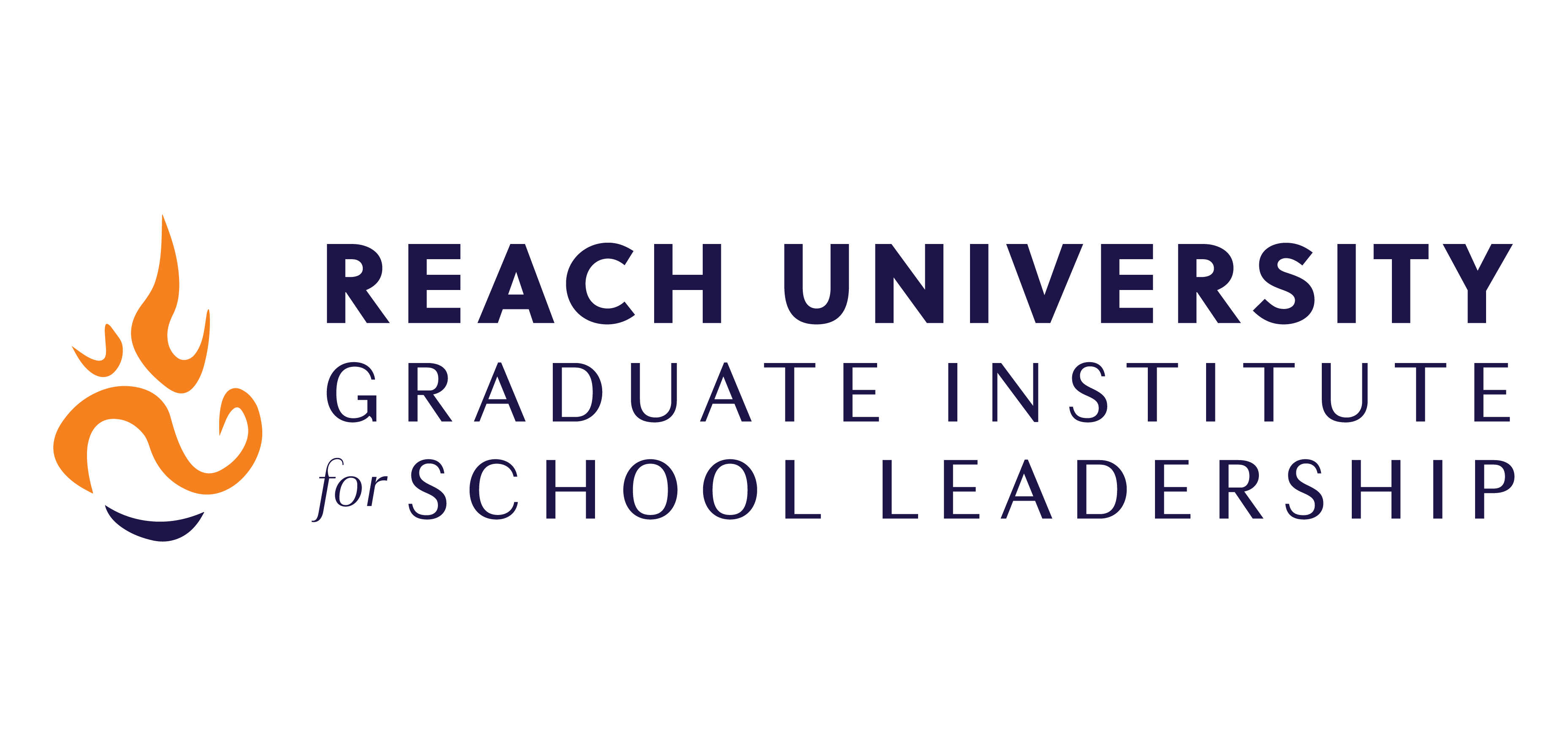Graduate Institute
For California-based school employees working in a Reach University partner school system, the Graduate Institute offers an Intern Teacher Credential program, a Master of Arts in Teacher degree program, a Teacher Induction Program (TIP), an equity-centered Preliminary Administrative Services Credential (PASC), Clear Administrative Services Credential (CASC) program and two Master of Education degree programs in Teaching and Instructional Leadership respectively.
Vision
Imagine a world where effort and merit, not money or connections, determine who gets ahead.
We seek to bring about a more equitable reality where each student has the support of highly effective and dedicated teachers, and where each teacher has the support of highly effective and dedicated school leaders, and where everyone has access to deeper learning and meaningful opportunities in their chosen local community.
Mission
Our mission is to help schools grow their own highly effective teachers and leaders, pursuing equity in underserved urban and rural communities. We also seek to advance the efficacy and adoption in higher education of inquiry-based instructional methods and job-embedded degree pathways.
Institutional Goals
The work of the Reach Institute is focused on achieving three Institutional Goals:
Goal 1. Develop highly effective teachers & instructional leaders to serve the diverse needs of students in partner schools and districts.
Goal 2. Create an innovative graduate school that embeds rigorous, relevant, applied learning in the school contexts of teachers and leaders.
Goal 3. Provide the educational community with a model for teacher and leadership development for ensuring equitable access and performance for all students.
The Reach Institute for School Leadership, in affiliation with Bay Area School of Enterprise (BASE) and the Oxford Teachers College of Reach University, offers six place-based complementary programs in Reach partner schools:
• Intern Teacher Credentialing Program
• Intern Teacher Credentialing Program + Master of Arts in Teaching
• Teacher Induction Program (TIP)
• Master of Education in Teaching and Induction Program
• Instructional Leadership Academy
• Bachelor of Arts in Global Education
Institutional Strategies
Reach was designed from the outset to meet the needs of educators learning complex skills, on-the-job, in difficult circumstances. Reach program practices were developed in response to research from teacher training, professional development, and apprenticeship programs, indicating that new knowledge and skills are more effectively developed when integrated with experience as opposed to the fragmentation that occurs when teachers learn in a context removed from their day-to-day experience. In response to this challenge, Reach developed the following five integrated and overlapping strategies:
- Personalized Professional Development: Each candidate develops and implements an Individualized Learning Plan with the help of peers, experienced leaders, and coaches. The plan is regularly referenced, reflected on, and updated based on evidence of the candidate’s progress.
- Job Embedded Coaching: While learning about individual school contexts, experienced coaches support the development of candidates’ practice through questioning, instruction, collaboration, observation, and feedback. Coaching occurs cyclically as a process of building awareness, taking action, analyzing results, and changing attitudes.
- Integration of Knowledge and Practice: Reach candidates are supported to apply knowledge gained from research to continually develop skills while immediately impacting and improving their classroom, program, or organization in pursuit of equitable student outcomes. Course instruction is designed utilizing best practices in professional development and adult education.
- Inquiry Mindset:The relevant and applied curriculum of Reach courses engages candidates in repeated cycles of inquiry. These cycles take a variety of forms, all of which contribute to the development of an action-research orientation that assists candidates in not only analyzing practice but in making and implementing evidence-based decisions to improve practice.
- Reflective Communities of Practice: In order to build classroom and instructional leaders who are committed to and support one another’s growth, candidates meet in cohorts and small inquiry groups and develop the habits of mind to look deeply at their own and each others practice, offering feedback and inquiries to help one another identify the obstacles and avenues to great work
Equal Opportunity
Reach University affords equal opportunity to all students, and other participants without regard to race, color, religion, citizenship, political activity or affiliation, marital status, age, national origin, ancestry, physical or mental disability, medical condition (as defined under California law), veteran status, family care status, sexual orientation, sex (which includes gender and gender identity, pregnancy, childbirth, or related medical conditions), taking or requesting statutorily protected leave, or any other basis protected by law.)
Reach Institute Master’s Graduate Profile (Institutional Learning Outcomes, ILOs):
Reach graduates combine research and practice to take effective action in the service of educational equity.
Toward this end, they are able to:
O1. Inquiry: Identify problem of practice, gather information, develop and execute an action plan, analyze results, reflect on implications for future practice
O2. Equity Orientation: Take action to address situational and systemic inequity in education
O3. Integration into Practice: Apply that which they have learned and integrate it into their practice
O4. Collaboration: Interact around research problems and increase each other’s knowledge of the research related to their projects
O5. Commitment: Demonstrate a commitment to creating and sustaining urban schools
Participant Satisfactory Data: Read the Reach Institute for School Leadership participant satisfactory data HERE.
Regional Accreditation: The Reach Institute for School Leadership is accredited by WASC Senior College and University Commission (WSCUC), 985 Atlantic Avenue, Suite 100, Alameda, CA 94501, (510) 748-9001.
California CTC Program Accreditation: In affiliation with the Reach Institute for School Leadership (dba Reach University), the Alternatives in Action Bay Area School of Enterprise (AIA/BASE) is accredited by the California Commission on Teacher Credentialing. You may view the current list of approved program HERE.
.

